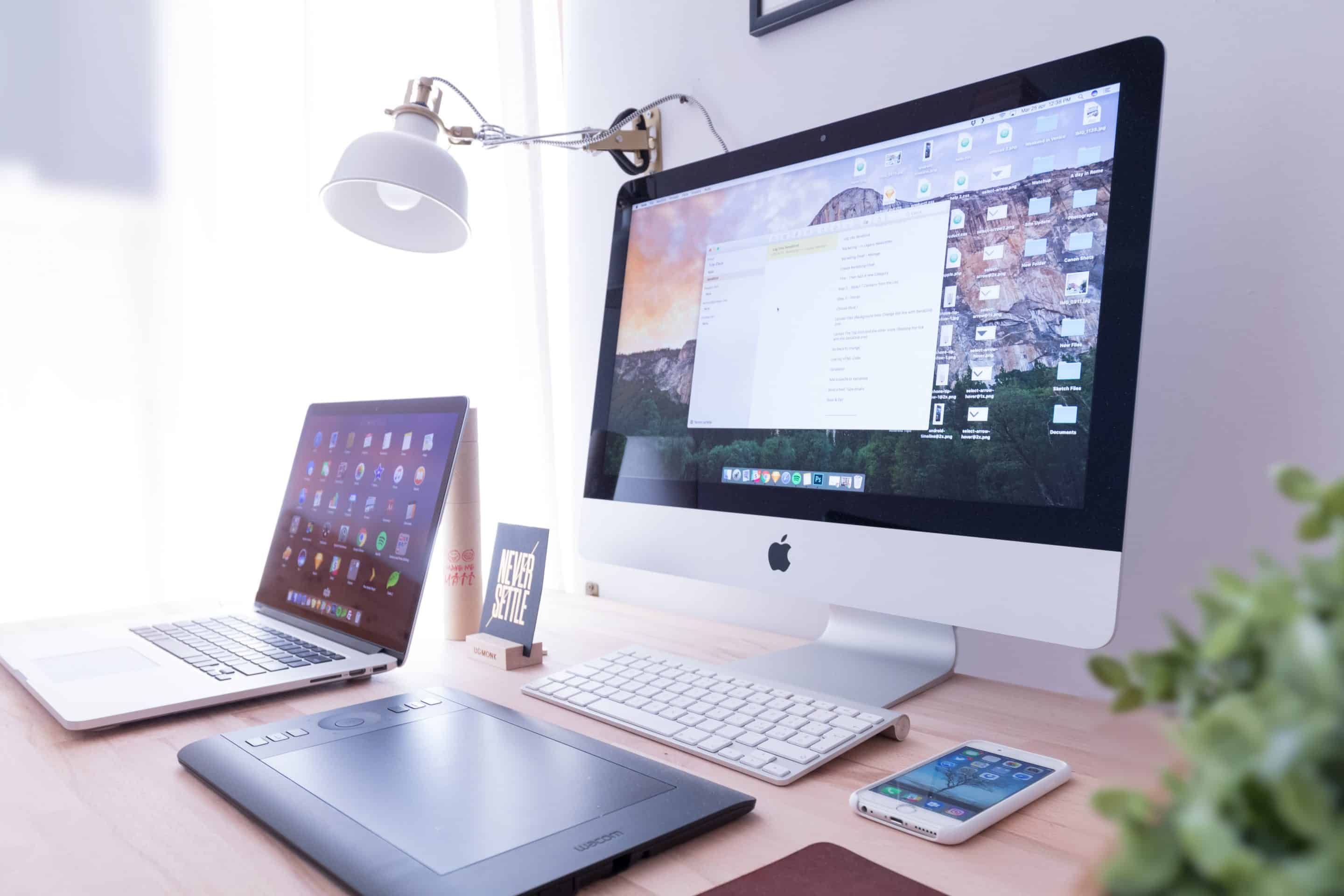Blue light is the source of a lot of conversation these days. More and more people have introduced “blue light glasses” into their screen time routines, health websites recommend limiting the intake of blue light before bed, and some people cite blue light as the ultimate reason for giving up screens altogether. Amongst all of the clammer, it can be hard to track down a good definition. What even is blue light, and what does it really do to you?
What is blue light?
Let’s start by establishing one key point: blue light is not the villain it’s made out to be. Actually, most of the blue light we absorb comes naturally from the sun. All light is composed of a collection of wavelengths. Blue light is a naturally occurring part of the visible light spectrum. Depending on the length of the wavelength, it has a high or low energy, and that determines how our eyes interact with the energy, creating different colors. The shorter waves transmit more energy, and blue light is one of the shortest lengths, almost as high-energy as the dangerous UV waves which are barely cut out of the visible light spectrum. Blue light is a crucial part of alertness, and during the day, when the sun transmits most blue light to our brains, it helps keep us attentive, and even boosts our moods and reaction times.
Where does blue light come from?
Most of the blue light we see comes from the sun. Like all of the rest of the light, the sun provides the vast majority. The second biggest source of blue light in our man made environments is light emitting diode (LED) lights. These light sources include light bulbs, fluorescent lighting, and, worst of all, screens. The reason screens have caused such a stir is because of the high exposure we have to them. Most people don’t stare at LED light bulbs at close proximity nine or more hours per day, but the same can not be said for screens. Especially during the pandemic and the great shift to work from home, people report spending unprecedented amounts of time on digital devices. Even when that screen time is productive, like work or activities to better yourself, the 90% of free time we spend on screens has undeniable effects on our brains.
What are the impacts of exposure to blue light?
Mostly, this impacts sleep. The circadian rhythm is our body’s natural sleep schedule, maintained by the natural light and dark cycle of the sun. When light is prominent, our brains stop producing melatonin, the sleep hormone, and when light fades into night, melatonin production increases. This cycle keeps us sleeping and staying awake naturally, but it can easily be hijacked. When we expose ourselves to light, especially high-energy, high-alertness blue light, it signals to our brains that we should stay awake and stop producing melatonin. Before bed, this throws off sleep. Staying away from screens before bedtime or anytime after the sun sets will help your sleep schedule stay healthy and self-regulated.
Blue light can also be damaging to our physical eyeballs. The proximity and alertness that screens produce in our eyes has damaging effects. Research found that people blink less when they look at screens, which can dry out their eyes. For children, these hindrances can be the most harmful, as their brains develop to accommodate blue light from screens, and their developing eyeballs and circadian rhythm pay the price. According to a study, blue light can also induce photoreceptor damage in children and adults, which means more damage earlier in life to the retina as compared to normal incandescent or natural light exposure.
How can I limit negative effects of screen time and blue light exposure?
Blue light glasses provide one solution to the nighttime problem. During the day, avoid canceling out any blue light, because it is an important part of your body’s ability to stay awake and in a good mood, but towards the end of the night, if you still need to use devices or work late, try out blue light glasses to make bedtime easier.
Another strategy is the 20/20/20 method. For every 20 minutes you spend on a screen, take 20 seconds to focus your eyes on something 20 feet away. This exercise strengthens your eyes and helps prevent depletion in your eye’s natural capability to adjust focus quickly.
On screens, you can usually switch to “night mode,” which has a different balance of warm light, promoting less eye strain and straight blue light. This can help ameliorate the effects of extended screen time, especially before bed.



